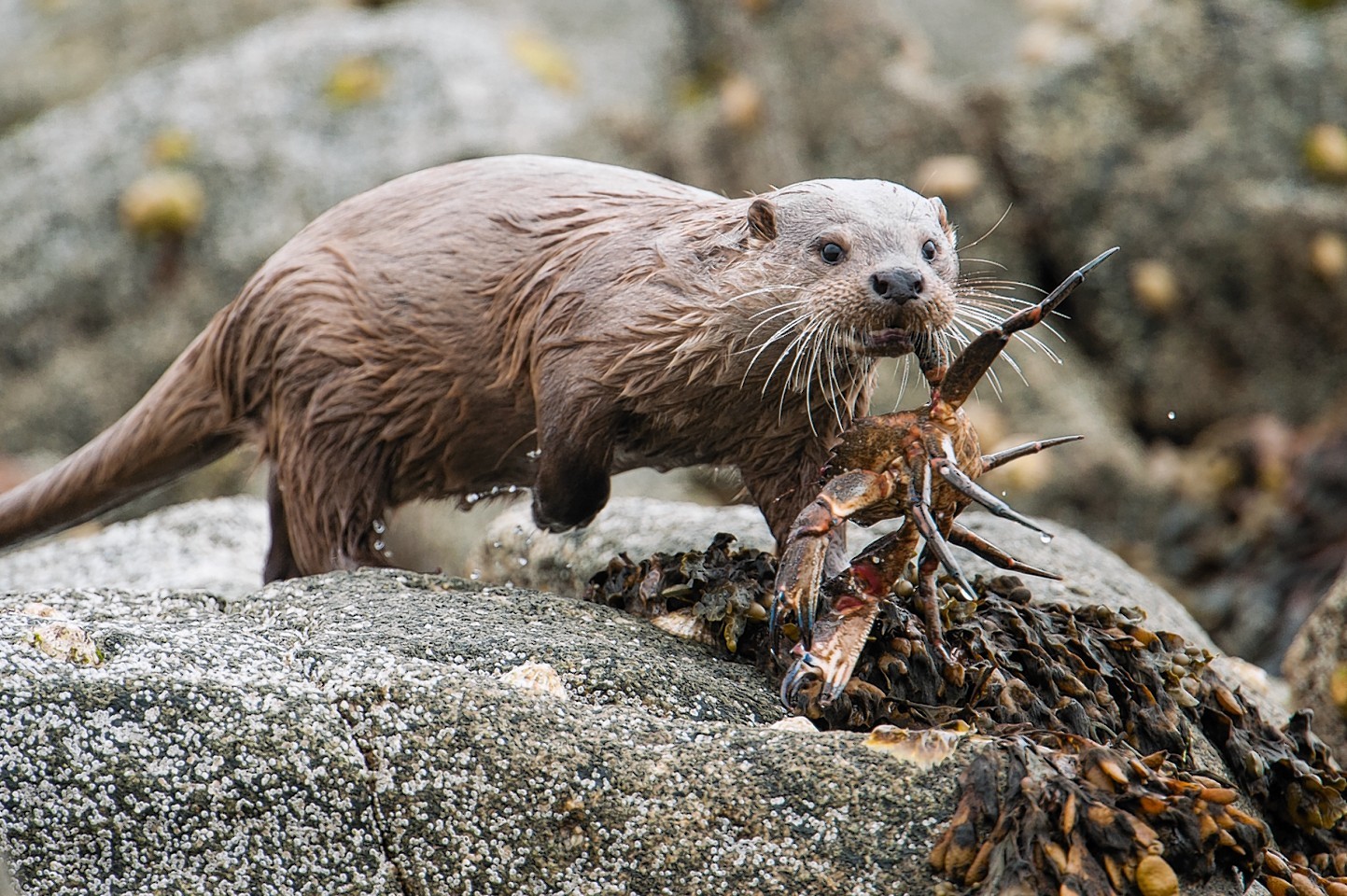Public health officials say avian flu was detected in four otters during routine testing.
The Animal and Plant Health Agency (APHA) say the quartet that tested positive were all in Scotland – one on Shetland, one on Skye and two in Fife.
They were all discovered last year.
According to APHA, samples taken as part of routine wildlife surveillance detected the presence of H5N1 influenza of avian origin also in four foxes – all in England.
Now monitoring is being stepped up to see if the virus that has devastated bird populations is taking a foothold in other species like otters.
Conservations also took to social media to warn of the threat.
The APHA report that 20 mammals have been retrospectively tested, of which eight were influenza A (H5N1) positive.
It states: “The species affected (foxes and otters) are presumed to have direct high-level exposure to infected birds based on feeding behaviour and food preferences.
“The avian influenza outbreak in the UK is assessed as at risk level three although there is limited mammalian surveillance data.
No further cases reported
“At present, there are no indicators of increasing risk to human health, however this is a low confidence assessment. The risk assessment is dynamic and requires regular review during this period of unusually high levels of transmission in birds with mammalian spillover.”
A spokesman for NatureScot said: “We are concerned about the unprecedented outbreak of avian flu over the last two years and continue to work with partners through the Scottish Task Force to ensure that we have the correct monitoring and best advice for land managers in place.
“Animals scavenging on dead birds and then succumbing to avian flu has been reported in a number of countries, but thankfully at very low levels.”
A Scottish Government spokesman said: “No additional mammals have tested positive for HPAI in Scotland beyond those already reported. The risk of the H5N1 strain to non-avian UK wildlife is low.
“A surveillance programme remains in place for the testing of certain mammalian wildlife species for avian influenza virus.
“We advise members of the public not to not touch any sick or dead wild animals and make sure to wash your hands thoroughly with soap after contact with any animal.”
The Scottish Wildlife Trust say bird flu has now been confirmed in 37 bird species in Scotland including herring gulls, several geese, mute swans, guillemots, kittiwakes, razorbills and puffins.

Conversation